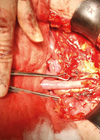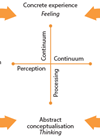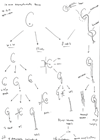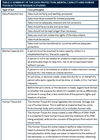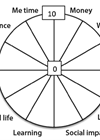Features
Lifestyle interventions for UI in women
Lifestyle interventions for urinary incontinence (UI) are supported by all major guidelines. The National Institute for Health and Care Excellence (NICE) guideline (CG171) from September 2013 (updated November 2015) [1] recommends lifestyle advice including dietary modifications such as caffeine reduction,...
The Mitrofanoff procedure: a continent revolution
Prior to 1980, surgeons had been struggling to provide a catheterisable, continent channel as an alternative to the native urethra, primarily for paediatric patients with congenital neuropathic bladder. In 1980, Professor Paul Mitrofanoff described the continent supravesical antireflux appendicovesicostomy [1]...
Simulation-based training of procedural skills: application and integration of educational theories
Educational theories: how familiar are we with these theories and their application in our training? As a Simulation Fellow I have been involved in teaching specific procedural skills and running full immersion simulation sessions. This experience has exposed me to...
The scent of Ethiopia: a personal story part 2
In May/June 2016 we featured a wonderful account of Zeeshan Aslam’s first trip with Urolink to the Hawassa Referral Hospital in Ethiopia (see here). One year on we are delighted that Zeeshan has once again taken the time to provide...
Consent: your obligations in the modern, post-Montgomery era
There has been so much recent discussion and so much emphasis placed on the fundamental right that we all have to determine what is or is not done to us, the right to self-determination, that it would be either a...
An introduction to research governance
Research is the process of acquiring new generalisable knowledge and should be fully integrated into healthcare work. There is a growing drive to encourage and further develop evidence-based practice in medicine so that staff and patients benefit from improved healthcare...
The surgical trainer – are we still evolving?
“We need a system and we will surely have it – which will produce not only surgeons, but surgeons of the highest type” William Halsted MD William Halsted, a famous American surgeon, is widely credited with developing the first formal...
A time management guide for urologists
Good time management is thought to not only reduce stress, but to improve personal efficiency, service delivery, clinical effectiveness and patient care. It was Benjamin Franklin in the 18th Century who originally made the link between success and the proper...
The scent of Ethiopia: a personal story – part 1
Background The year was 2004; I had just moved to the UK as a young house officer and finished my observership programme at Great Ormond Street Hospital in London. I was inspired by greats like Patrick Duffy and Phillip Ransley,...
The emerging role of physician associates in urology
The physician associate (PA) is a new role in the NHS which has expanded across medical and surgical specialties to include urology. In the USA, it has long been an established field of practice where physician assistants work autonomously within...
Reflections on 20 years as an Army Reserve doctor: live a life less ordinary
It seems a very short time ago that my predecessor recruited me into my regiment as a surgical senior house officer during a varicose vein operation in a cottage hospital in Stroud, informing me that I would be only the...
Guide to gaining approval for a clinical study
This article focuses on gaining approval for clinical research involving NHS patients, although the principles can be applied to other types of research. It can be quite a daunting process for the uninitiated applicant. Often it can be made less...


